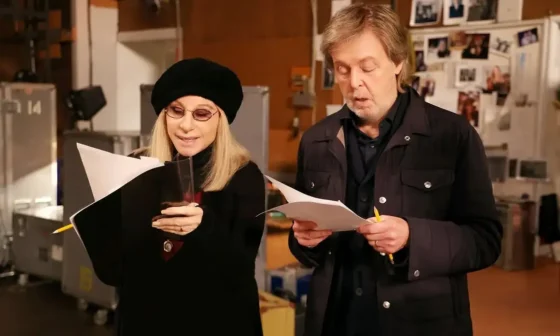Rod Stewart’s “The Killing of Georgie” — A Groundbreaking Anthem of LGBTQ+ Compassion and Courage
When Rod Stewart released “The Killing of Georgie (Part I and II)” on June 18, 1976, he didn’t just add another hit to his catalog—he made history. In a decade when queer lives were often hidden or ignored in mainstream culture, Stewart’s heartfelt ballad became a beacon of empathy, honesty, and quiet rebellion.
Featured on his album A Night on the Town, the song tells the poignant, tragic story of Georgie—a young gay man rejected by his family, who finds a sense of freedom in New York City before falling victim to a hate crime. Inspired by a real friend, Stewart’s narrative was both personal and fearless. Delivered with striking tenderness and clarity, the line “Georgie boy was gay, I guess. Nothin’ more or nothin’ less” offered one of the first sincere and humanizing portrayals of a gay man in pop music—a rare stance at a time when LGBTQ+ identities were taboo on radio and television.

Despite pushback—radio censorship from the BBC and concern from his record label over potential backlash—Stewart refused to censor or soften the song. He called it one of his proudest accomplishments. In choosing truth over comfort, he gave voice to a community that had long been silenced, making “The Killing of Georgie” not just a song, but a stand.
Musically, the track is as ambitious as its message. Told in lyrical tercets, the storytelling is elegant, poetic, and heartbreaking. Lines like “Youth’s a mask but it don’t last, / Live it long and live it fast” reflect not only the fragility of Georgie’s life but also a universal ache—the fleeting nature of youth and safety.
Despite its controversial subject, the song found commercial success. It reached No. 2 on the UK charts and broke into the Top 30 in the U.S., also charting in Canada, Australia, and the Netherlands. While some critics were unsettled by its directness, others hailed it as one of Stewart’s most artistically daring works. He even acknowledged borrowing elements of the melody from The Beatles’ “Don’t Let Me Down”—a nod that only deepened the song’s emotional resonance.
But “The Killing of Georgie” is more than a charting single—it’s a cultural milestone. For LGBTQ+ listeners, it was a moment of recognition in a world that rarely offered any. Georgie wasn’t a stereotype or a punchline—he was a friend, “the kindest guy I ever knew,” as Stewart sings. In saying that, Stewart challenged prejudice and invited empathy.
The song’s haunting relevance has only grown with time. From the murder of Matthew Shepard in 1998 to the Pulse nightclub massacre in 2016, Georgie’s story continues to echo in real-life tragedies that underscore the dangers queer people still face. In those moments of collective grief, Stewart’s voice remains a source of comfort and remembrance.
Nearly 50 years on, “The Killing of Georgie” stands as a remarkable act of allyship. In May 2025, its legacy still resonates—its message as urgent and necessary as ever in the fight for visibility, dignity, and justice.
Rod Stewart didn’t just write a song—he told a story that needed to be heard. He used his platform to honor a friend, humanize a community, and speak a truth few dared to voice. In doing so, he not only created one of the most moving pieces in his career—he helped pave the way for more inclusive, compassionate storytelling in music.
“The Killing of Georgie” remains more than a ballad.
It is a memorial.
A protest.
A promise that no life should be forgotten—and no voice, ignored.






